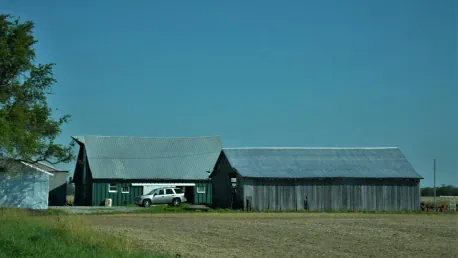Extreme heat has become a significant challenge for dairy and cattle producers, severely impacting animal health, milk production, and overall farm profitability. This issue is primarily due to heat stress, which reduces feed intake, lowers fertility rates, and increases the risk of illness and mortality among livestock. Recent research from the University of Illinois has highlighted that heat stress leads to a 1 percent annual decline in U.S. dairy milk yield, resulting in $245 million in losses over five years. Addressing this issue is critical to sustaining the dairy farming industry.
Innovative Insurance Solutions
Resolving Economic Strain
To tackle these challenges, AIR Parametric Inc. has significantly expanded its heat stress insurance product, Milkshake, this year. This parametric insurance product, which had its successful initial launch last year, is designed to provide broader financial protection for livestock operations against extreme heat events. Unlike traditional insurance, which engages in prolonged claims processes, Milkshake offers immediate payouts based on pre-defined temperature thresholds. This approach ensures timely financial support for farmers grappling with climate-related adversities.
Jamie Luce, CEO and Co-Founder of AIR Parametric, pointed out that heat stress imposes a considerable financial burden on dairy and cattle farmers. The expansion of Milkshake now embraces this reality by delivering additional coverage options. Initially offering protection for seven-day heat stress events, Milkshake now addresses shorter-duration periods of three and five days to more effectively manage frequent temperature spikes. Furthermore, the policy incorporates three customizable trigger options, allowing farmers to tailor coverage to their specific risk management needs.
Long-term Economic Impact
AIR Parametric investor and Head of Product, Ed Yorty, emphasized the long-term economic repercussions of extreme heat events. These adverse conditions lead to reduced feed efficiency, increased veterinary costs, and lower reproductive success rates among livestock. The primary objective of the Milkshake insurance product is thus to provide proactive solutions that enable farmers to recuperate from these challenges before they escalate into significant financial burdens. Using AIR Parametric’s advanced weather data, engineering expertise, and machine learning capabilities, the insurance product pinpoints specific weather conditions that precipitate payouts. This innovative method excludes the necessity for traditional loss assessments and ensures prompt financial support for producers.
Future Projections and Adaptations
Adapting to Rising Heat Events
Climate projections indicate that extreme heat days will become increasingly frequent, potentially escalating milk yield losses by 30 percent by 2050. This alarming forecast underscores the growing necessity for innovative insurance solutions like Milkshake. These solutions are structured to address the real economic losses faced by farmers due to unpredictable temperature swings and frequent heat domes. As the climate continues to evolve, the dairy industry must adopt comprehensive measures to safeguard their operations against these environmental threats.
Ensuring Financial Security
Extreme heat has emerged as a serious challenge for dairy and cattle farmers, significantly affecting the health of their livestock, milk production, and the overall profitability of their operations. The primary problem is heat stress, which leads to decreased feed intake, lower fertility rates, and a higher incidence of illness and death among animals. Recent studies from the University of Illinois reveal that heat stress results in a 1 percent annual drop in U.S. dairy milk yield. This decline has translated to a staggering $245 million in losses over a span of five years. As a consequence, farmers face considerable economic risks that threaten the viability of the dairy farming industry. Addressing the impacts of extreme heat is, therefore, crucial for the sustainability of dairy farming. It is imperative to find effective solutions to mitigate heat stress in livestock and ensure the long-term success and health of the dairy sector.









